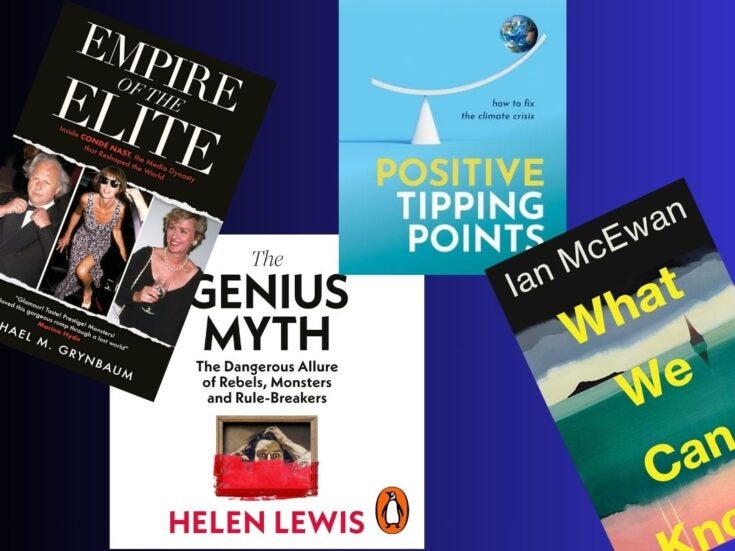
Magpies, Squirrels and Thieves: How the Victorians Collected the World
Jacqueline Yallop
Atlantic Books, 320 pp
Reviewed by Mark Le Fanu
Buy Magpies, Squirrels and Thieves
Collecting seems to be a permanent human itch. As soon as anyone makes a bit of money, the urge arises to convert a portion of one’s assets into pictures and ‘things’ that can be used to demonstrate your refinement and taste visually.
Most of us exercise this proclivity within limits, both of budget and desire. But for a few people in every generation the quest becomes an overriding obsession — an end in itself, you could say. Jacqueline Yallop’s book investigates the peculiar psychology of ‘collecting mania’ by examining the lives of five representative Victorian figures who, while probably obscure to most of us, turn out to have had immense behind-the-scenes importance in the annals of English aesthetics.
All of them led adventurous, strenuous lives. John Charles Robinson, the first of her examples, rose from humble provincial beginnings to occupy the post of Surveyor of the Queen’s Pictures. In the course of a stormy career (diplomacy was not his strong suit), he built up the collection of what was then the South Kensington Museum, soon to become the Victoria & Albert: not the only contributor to this institution, of course, but certainly one of the major ones.
Next comes Charlotte Schreiber, aristocratic by birth, twice married and a mother of ten, who gathered together one of the great contemporary collections of china, yet also many other varieties of object that caught her eye: playing cards, fans, old glass, Assyrian sculpture. She was a cousin of Layard, the excavator of Nineveh, and her great gothick mansion, Canford, in Dorset, which she shared with her first husband, an iron master, for a while housed the only other examples of these fragments of antiquity outside the British Museum.
Schreiber is a joy to read about, especially her linguistic prowess. She seems to have taught herself Arabic, Hebrew, Persian and Welsh. In addition, she read Chaucer and Ariosto for pleasure, and played a mean game of billiards. Some of the most enjoyable pages of the book describe her rummaging for treasures in Paris with the battles of the Commune raging around her.

Joseph Mayer, too, a northern jeweller and antiquarian, had more than one string to his bow: though archaeological treasures were his speciality, he pioneered the collecting and connoisseurship of Wedgwood (by Victorian times long out of fashion) before going on to found one of the great provincial museums, in Liverpool.
Two further collectors complete Yallop’s roster: Murray Marks, a friend of Rossetti, was the dealer behind the craze for blue and white china that swept Victorian drawing rooms in the 1870s. He collaborated with Whistler on the Peacock Room. The well-run, carefully lit modern display gallery of exquisite aesthetic design that we are still used to visiting today in Bond Street was essentially his innovation.
Finally, there is Stephen Wootton Bushell. A doctor by profession, working for the British Legation in Peking, he gradually amassed one the great Western collections of ancient Chinese porcelain, the bulk of which he bequeathed to the V&A. Like many of Yallop’s examples, Bushell endured stormy times, at one stage losing his entire savings following the crash of the Oriental Bank. With typical Victorian resilience, however, he ‘rose from the ashes’, harnessing his experience to the service of American millionaires, such as the Baltimore liquor king William Thompson Walters, who at that stage was beginning his collecting career.
The financial protection thus acquired gave Bushell precious time and opportunity for private scholarship. Chinese Art (two volumes — 1904 and 1906), his seminal work on this subject, remains the last, happy fruit of a lifetime of enlightened curiosity.
The history of collecting and connoisseurship is a growing academic discipline in universities, complete with specialised journals and conferences. Yallop is at home in this world, but at the same time she rises above it by virtue of the elegance of her prose and the vigorous professionalism of her storytelling. She possesses the deep and comprehensive grasp of her subject which an author writing for the general public ought to have, so that her chapters display erudition without pedantry, and charm without sentimentality: the wider context of Victorian society is always safely there in the background.
Yallop has fascinating things to say about the provinces as well as the metropolis, about imperialism and feminism and the Victorian social conscience. Elsewhere, intriguing sections of the book inform the reader about the long-standing rivalry between the British Museum and the V&A; the perennial traffic in fakes; and the crucial social nuances that differentiate a mere ‘dealer’ from a gentleman ‘collector’.
Standing behind all these topics is the author’s open-minded psychological inquisitiveness. What sort of human beings are we dealing with? The novels of Henry James are full of desiccated aesthetes whose passion for objects is purchased at the price of a loss of the human affective faculty. This is not the case here — at least not obviously, or egregiously. Not all Yallop’s subjects come across as saints by any means. But, on the evidence offered, they sought out experience boldly, and lived their lives to the full.
Buy Magpies, Squirrels and Thieves







